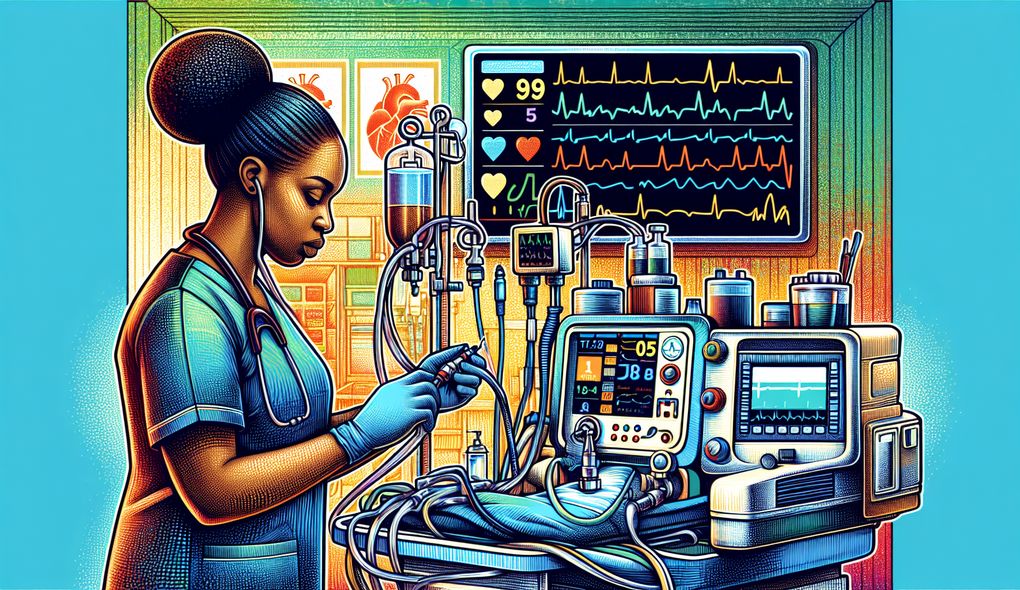Tell us about a time when you made a mistake in administering anesthesia. How did you handle it and what did you learn from the experience?
SENIOR LEVEL

Sample answer to the question:
During a surgical procedure, I once made a mistake in administering anesthesia to a patient. I accidentally administered too much anesthesia, which caused the patient's blood pressure to drop significantly. However, I quickly recognized the mistake and immediately took action. I administered medication to stabilize the patient's blood pressure and closely monitored their vital signs throughout the procedure to ensure their safety. From this experience, I learned the importance of double-checking medication dosages and closely monitoring patients during anesthesia administration.
Here is a more solid answer:
I would like to share an experience when I made a mistake in administering anesthesia during a surgical procedure. While preparing the anesthesia medication, I inadvertently used the wrong concentration for the IV infusion. As a result, the patient's blood pressure initially dropped, and their heart rate increased. Recognizing the issue immediately, I alerted the surgical team and took immediate action to stabilize the patient. I administered a vasopressor to elevate the blood pressure and closely monitored the patient's vital signs throughout the procedure. After the surgery, I thoroughly reviewed the medication preparation process to prevent such errors in the future. This incident taught me the importance of double-checking medication concentrations and the need for open communication within the surgical team.
Why is this a more solid answer?
The solid answer provides a detailed account of a mistake made in administering anesthesia, the specific actions taken to handle the situation, and the subsequent steps taken to prevent similar errors. It addresses the evaluation areas by highlighting the candidate's in-depth knowledge of pharmacology, strong analytical and decision-making skills, excellent communication skills with the surgical team, and their focus on patient safety. However, it can be further improved by including examples of the candidate's experience with patient care and their ability to work efficiently in a high-stress environment.
An example of a exceptional answer:
Let me share a critical incident that occurred during a complex surgical procedure where I made an error in administering anesthesia. Due to a miscommunication, the patient's medical history was not thoroughly reviewed, leading to an incorrect assessment of their drug allergies. As a result, I administered a medication to which the patient had a severe allergic reaction. Immediately realizing the mistake, I swiftly initiated the necessary emergency measures, including administering epinephrine, providing oxygen support, and calling for additional medical assistance. Following the resolution of the acute reaction, I took the time to carefully analyze and document the incident, recognizing the need for improved communication and patient history verification protocols. I also took a proactive approach to share this experience with my colleagues, leading to a department-wide review and reinforcement of patient safety protocols. From this experience, I learned the crucial importance of thorough patient assessment, effective communication, and constant vigilance in providing safe anesthesia care.
Why is this an exceptional answer?
The exceptional answer provides a detailed and compelling narrative of a critical incident in administering anesthesia, highlighting the candidate's ability to handle high-stress situations, analyze the situation critically, and take immediate action. It showcases the candidate's commitment to patient safety, excellent communication skills, and their willingness to learn and improve from their mistakes. The answer goes beyond the basic and solid answers by demonstrating the candidate's ability to work efficiently in a high-stress environment and their strong decision-making skills. Additionally, it emphasizes the candidate's dedication to continuous improvement and their impact on the broader medical team by sharing the experience with colleagues for department-wide improvement.
How to prepare for this question:
- Review your knowledge of pharmacology and anesthetic drugs to ensure you are up to date with the latest guidelines and advancements in the field.
- Reflect on past experiences where you had to handle critical incidents or mistakes and think about the lessons learned from those situations.
- Practice explaining complex medical situations in a clear and concise manner, focusing on the actions taken and the impact of those actions on patient safety.
- Research and familiarize yourself with patient safety protocols and communication strategies in anesthesia administration.
- Be prepared to discuss how you prioritize patient safety and remain calm and responsive in emergency situations.
What are interviewers evaluating with this question?
- In-depth knowledge of pharmacology and anesthetic drugs
- Strong analytical and decision-making skills
- Excellent communications skills
- Detail-oriented with a focus on patient safety

